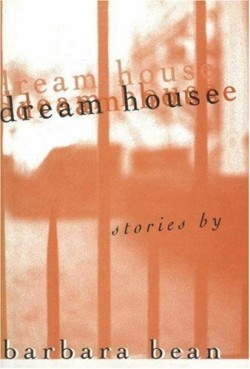Dream House
Uncertainty in love threatens the foundation of many dream houses. In her debut short story collection, Bean leaves the back door open allowing a glimpse into the domestic lives of her Midwestern teachers, students, and academics. A graduate of the Indiana University MFA program, Bean has published significantly in Midwestern literary journals.
Bean’s characters fall for each other in sometimes expected combinations, but she twists the arrow through their hearts. A young teacher experiences freedom in the arms of a student, but when she reveals at the quarry the inevitable—that they must break up—his action makes her anything but free. A sister tries to understand her saxophonist brother’s inexplicable behavior before he leaves for college by communing with his girlfriend and dancing in the sanctuary of his room.
These characters exhibit rich complexity. The teen’s lawyer mother prefers to be called by her first name, making the daughter yearn for closeness: “In two years, I would be eighteen—did that mean that she would be through with me too, like we were cakes in the oven and the timer had gone off?” Only this mother never cooks; she takes her kids to the diner.
Most of the stories concern adult relationships, many rife with infidelity. The least interesting are a trilogy about an aspiring academic and her farm-raised husband who teaches high school. In her best stories the protagonist strives to understand her partner as well as the complexity of her own desire. In “Perfect Heart,” a wife becomes entwined with her husband’s free-spirited lover. Yet, neither woman can fully grasp Sam, the handyman, who wanders virtually speechless through the house, out into his truck, in search of what he claims he always wanted—a parrot. He has left a flock of baby starlings in the pantry, who his lover nurtures and his wife fears.
Many of Bean’s women wander internally, examining their love, while the men roam. Ultimately they return to a world slightly altered—and sometimes made better—by their wives’ search for understanding. Tony, the card-playing garage owner, in “Dream House,” should win best supporting actor for the way he holds out for his traveling photographer wife. In the end, Bean champions the power of steadfast love, while admitting the complicated pull of desire.
Reviewed by
Jo-Ann Graziano
Disclosure: This article is not an endorsement, but a review. The publisher of this book provided free copies of the book to have their book reviewed by a professional reviewer. No fee was paid by the publisher for this review. Foreword Reviews only recommends books that we love. Foreword Magazine, Inc. is disclosing this in accordance with the Federal Trade Commission’s 16 CFR, Part 255.


